Surfers and kayakers eagerly anticipate an extraordinary natural spectacle known as the Severn Bore, transforming the typically serene Severn Estuary into a surfer’s paradise. Contrary to its name, this event is anything but boring, captivating water enthusiasts from around the world.
What is the Severn Bore?
The Severn Bore is a renowned tidal surge in the confluence of the River Severn and the Bristol Channel in the island of Great Britain, separating South Wales and South West England.
Tidal bores, characterised by a strong tide pushing against the river’s current, create impressive waves, with the Severn Bore reaching speeds between 10 and 13mph and towering up to two meters in height.
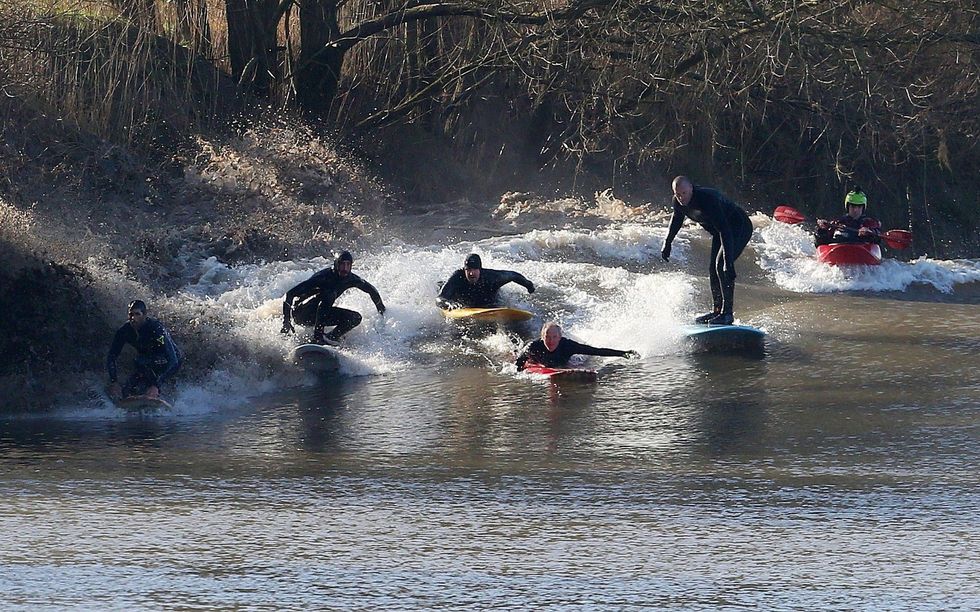
Why does the Severn Bore happen?
Tidal bores occur as a result of the tide rising against the river’s flow. In the case of the Severn Bore, the unique topography of the estuary, with its narrowing and shallowing configuration, squeezes water upward and forward, generating powerful waves.
The Severn Estuary boasts the world’s second-highest tidal range, contributing to the awe-inspiring waves. Conditions for optimal surfing are only met when the tide surpasses a specific height.
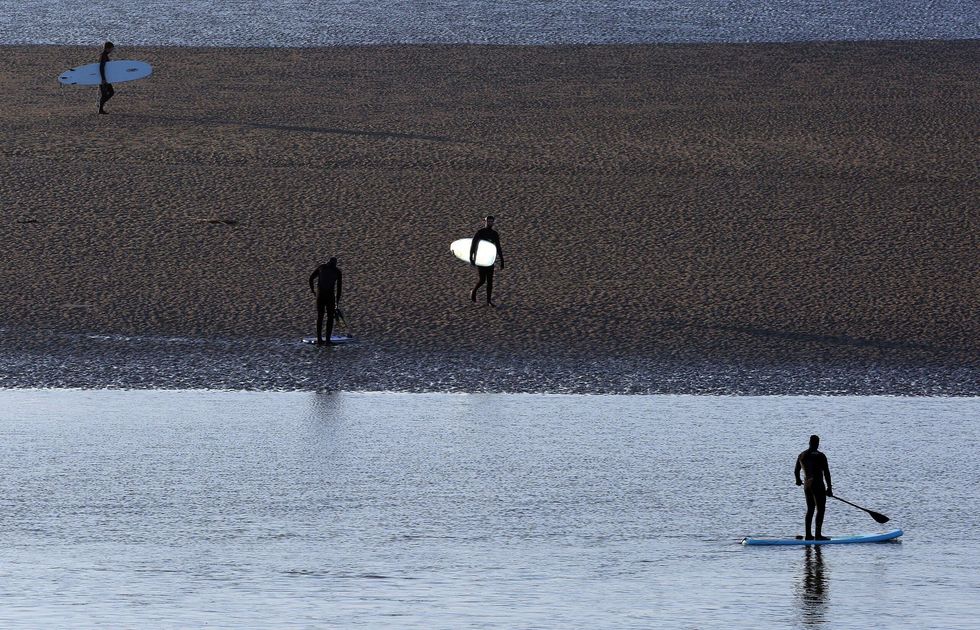
How Often Does it Occur?
Approximately 250 to 260 tidal bores grace the Severn Estuary annually, tied to the gravitational pull of the Moon and the Sun. Bores are classified on a five-star system, with the most spectacular earning a five-star rating. This year, only one five-star bore is anticipated, drawing surfers and spectators alike.
Bores occur approximately 130 days per year, primarily concentrated in the days following the new and full moon.
The bore’s size and exact timing hinge on factors like high tide timing, barometric pressure, wind speed and direction, river water volume, and the condition of main drainage channels. Various viewpoints offer the opportunity to witness the bore, or spectators can stroll along the riverbank or floodbanks for an optimal view.
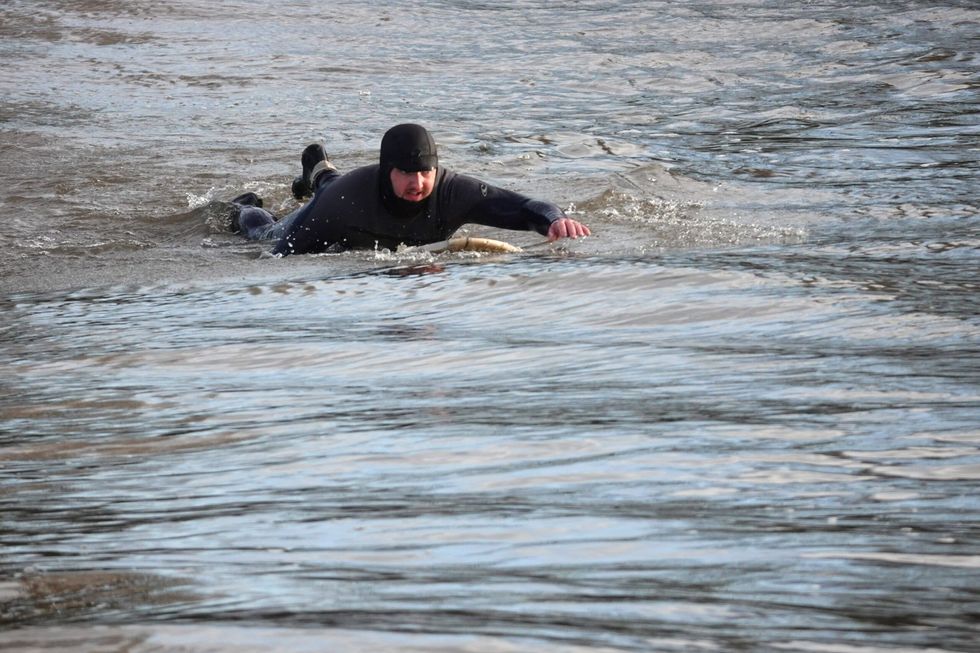
Surfing the Severn Bore
For surfers, the Severn Bore is a premier experience, attracting them to the estuary during the Spring and Autumn. Despite the challenging conditions and the area’s muddy and sometimes odorous environment, surfers revel in the thrill of riding the waves.
The first recorded surfer on the Severn Bore was Colonel ‘Mad Jack’ Churchill in 1955, and the current record for the longest surfing ride stands at an impressive 7.6 miles, achieved by Steve King in 2006.
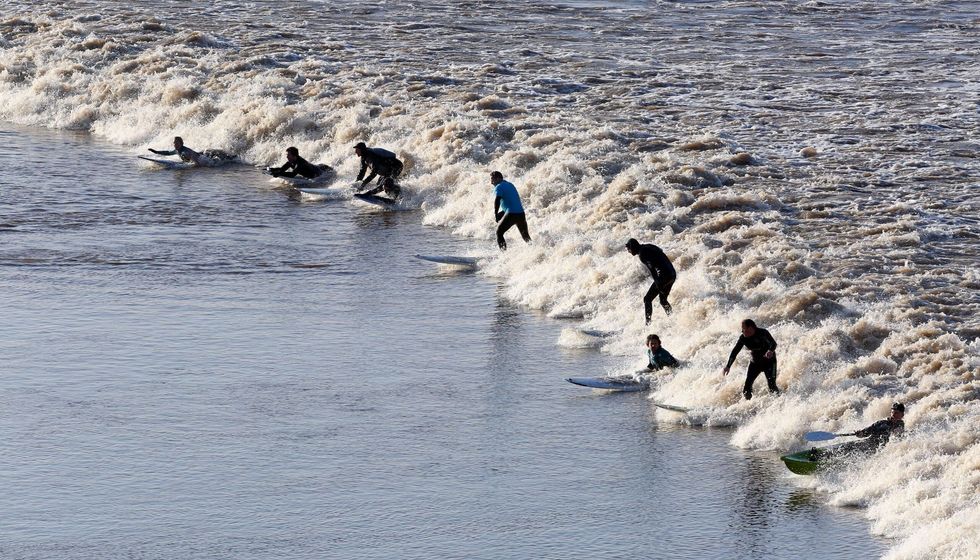
Beyond the Severn: Tidal bores worldwide
While tidal bores occur globally in rivers and estuaries, the Severn Bore holds a special place among enthusiasts. Although not the highest tidal bore worldwide – an honour belonging to China’s Qiantang River – the Severn Bore remains unparalleled in its spectacle.
Surfers and spectators alike eagerly await the anticipated five-star Severn Bore, a thrilling event showcasing the harmonious dance of tides and rivers, inviting both adventure-seekers and nature enthusiasts to witness the majestic convergence of natural forces.
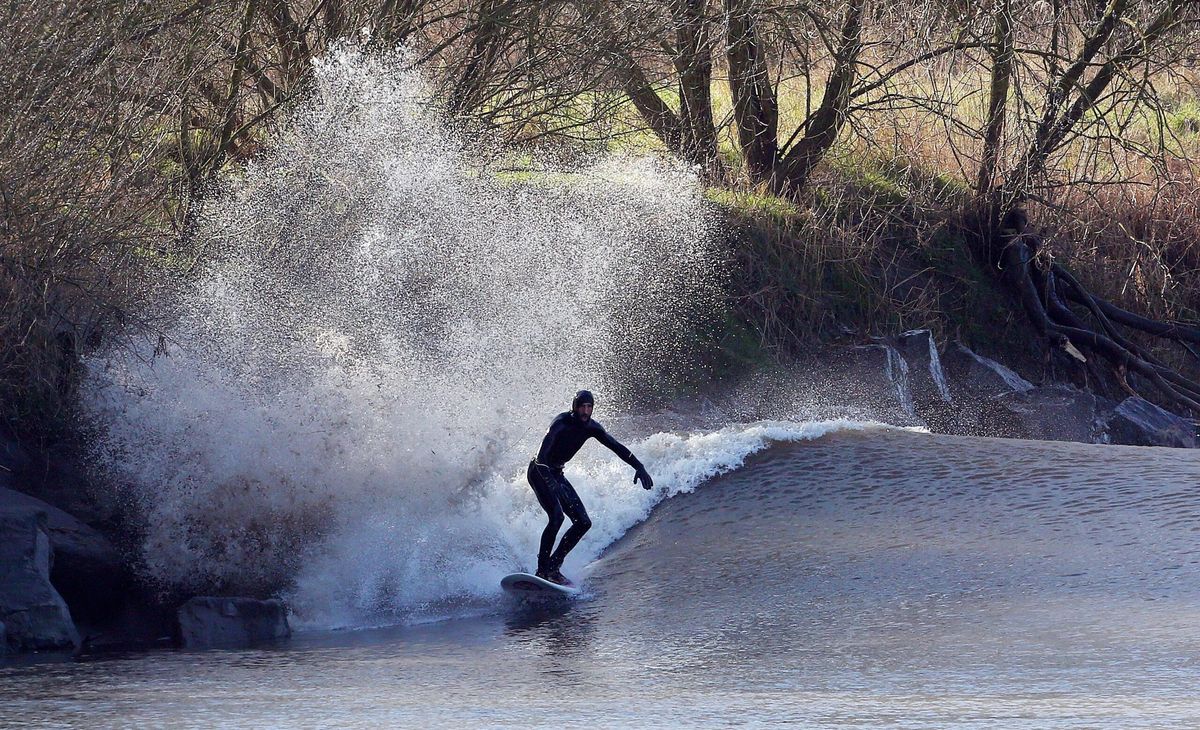






 Haider
Haider






 Jennifer Lopez (L), bride Netra Mantena (C) and groom Vamsi Gadiraju (R)X/@thestatevi26526
Jennifer Lopez (L), bride Netra Mantena (C) and groom Vamsi Gadiraju (R)X/@thestatevi26526

